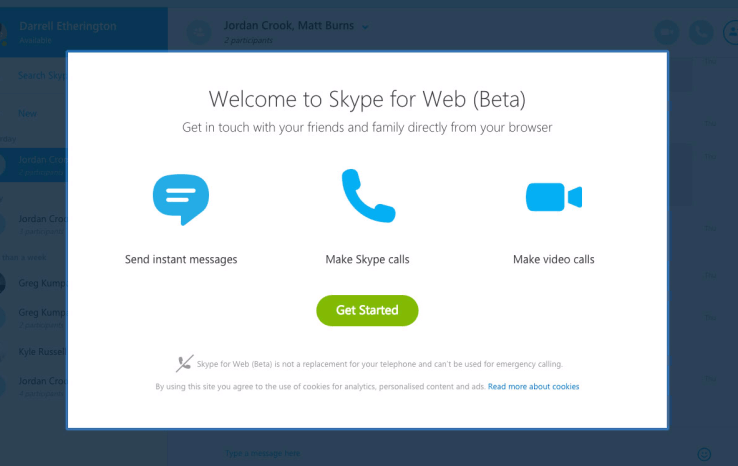
Skype’s web-based client, along with both IM and video/audio call functionality, is now available to all users in open beta, the company announced today. The web-based version of the popular chat and calling tool came out at the end of last year, with access gated based on an invite system, but now everyone can join in, so long as you’re residing in the U.S. or U.K.
The Skype web beta is available for Internet Explorer, Chrome, Safari and Firefox, and will work for IM-based chat on Chromebooks. Voice and video calling is only available on the browsers listed above on other platforms, however, including Windows and OS X, and requires that you install a browser plug-in to get those features running.
Skype on the web has some advantages over the local client: when you’re away from home, for instance, and using an unfamiliar computer. You could also just prefer not to have a native app installed, but regardless of your motivation, having a full-featured web-based version of Skype available is definitely not a bad thing.
The limited support for Chrome OS is a bit disappointing, but at least you can get access to your text-based convos on Chromebooks. It’s enough to stay in touch, and if you need the rich media interaction, it should be easy enough to jump on mobile to get connected.
Just head over to Skype.com to get started with the web-based client.

Comments
Post a Comment